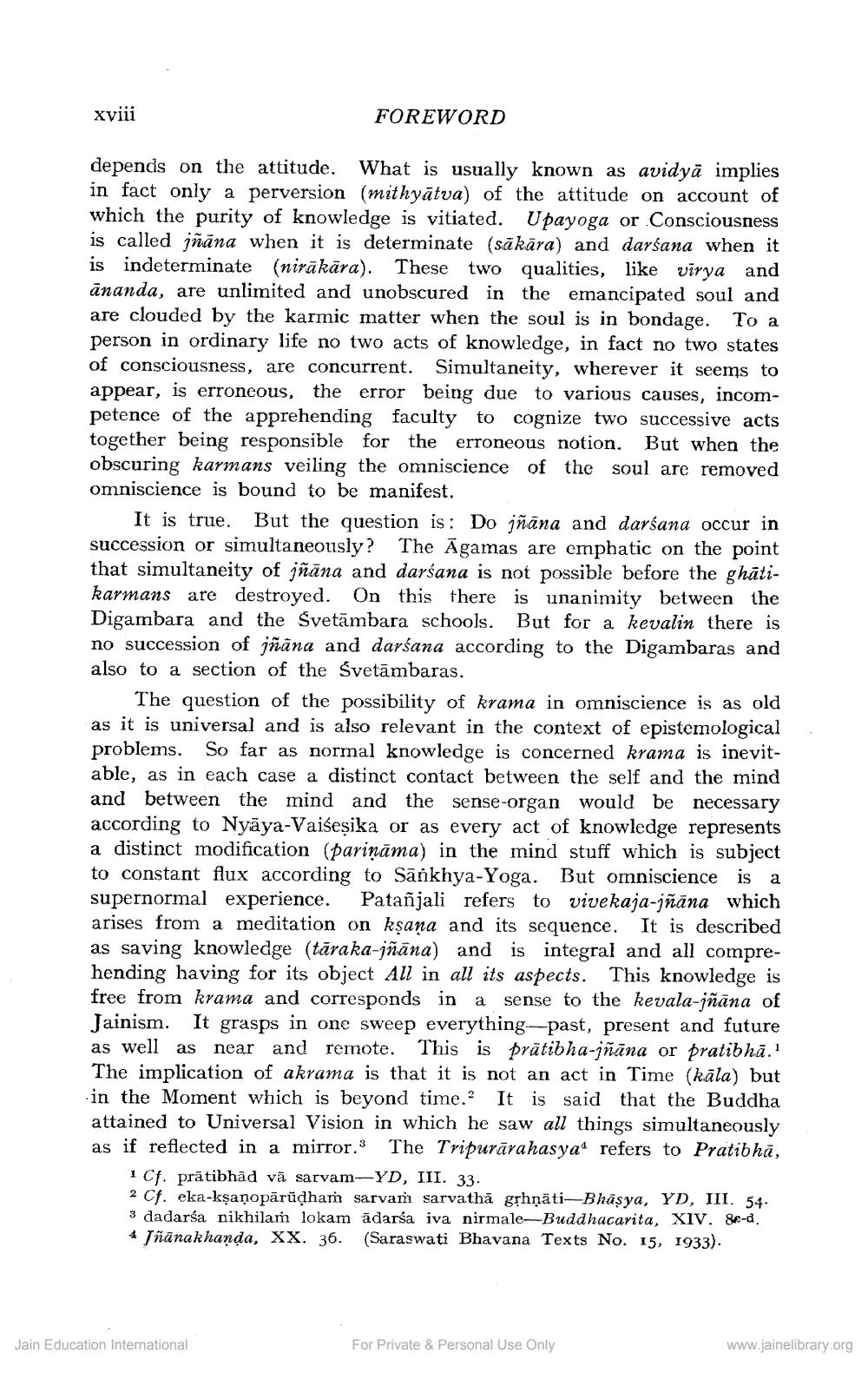________________
xviii
FOREWORD
depends on the attitude. What is usually known as avidyā implies in fact only a perversion (mithyātva) of the attitude on account of which the purity of knowledge is vitiated. Upayoga or Consciousness is called jñāna when it is determinate (sākāra) and darśana when it is indeterminate (nirākāra). These two qualities, like virya and ānanda, are unlimited and unobscured in the emancipated soul and are clouded by the karmic matter when the soul is in bondage. To a person in ordinary life no two acts of knowledge, in fact no two states of consciousness, are concurrent. Simultaneity, wherever it seems to appear, is erroneous, the error being due to various causes, incompetence of the apprehending faculty to cognize two successive acts together being responsible for the erroneous notion. But when the obscuring karmans veiling the omniscience of the soul are removed omniscience is bound to be manifest.
It is true. But the question is: Do jñāna and darśana occur in succession or simultaneously? The Āgamas are emphatic on the point that simultaneity of jñāna and darśana is not possible before the ghātikarmans are destroyed. On this there is unanimity between the Digambara and the Svetămbara schools. But for a kevalin there is no succession of jñāna and darśana according to the Digambaras and also to a section of the Svetāmbaras.
The question of the possibility of krama in omniscience is as old as it is universal and is also relevant in the context of epistemological problems. So far as normal knowledge is concerned krama is inevitable, as in each case a distinct contact between the self and the mind and between the mind and the sense-organ would be necessary according to Nyāya-Vaiseșika or as every act of knowledge represents a distinct modification (parināma) in the mind stuff which is subject to constant flux according to Sankhya-Yoga. But omniscience is a supernormal experience. Patañjali refers to vivekaja-jñāna which arises from a meditation on ksana and its sequence. It is described as saving knowledge (tāraka-jñāna) and is integral and all comprehending having for its object All in all its aspects. This knowledge is free from krama and corresponds in a sense to the kevala-jñāna of Jainism. It grasps in one sweep everything-past, present and future as well as near and remote. This is prātibha-jñāna or pratibhā. The implication of akrama is that it is not an act in Time (kāla) but in the Moment which is beyond time. It is said that the Buddha attained to Universal Vision in which he saw all things simultaneously as if reflected in a mirror.3 The Tripurārahasya" refers to Pratibhā,
1 Cf. prātibhād vā sarvam-YD, III. 33. 2 Cf. eka-kşaņopārüdham sarvam sarvathā grhņāti-Bhāsya, YD, III. 54. 3 dadarśa nikhilam lokam ādarśa iva nirmale--Buddhacarita, XIV. 8e-d. 4 Tñānakhanda, XX. 36. (Saraswati Bhavana Texts No. 15, 1933).
Jain Education International
For Private & Personal Use Only
www.jainelibrary.org




